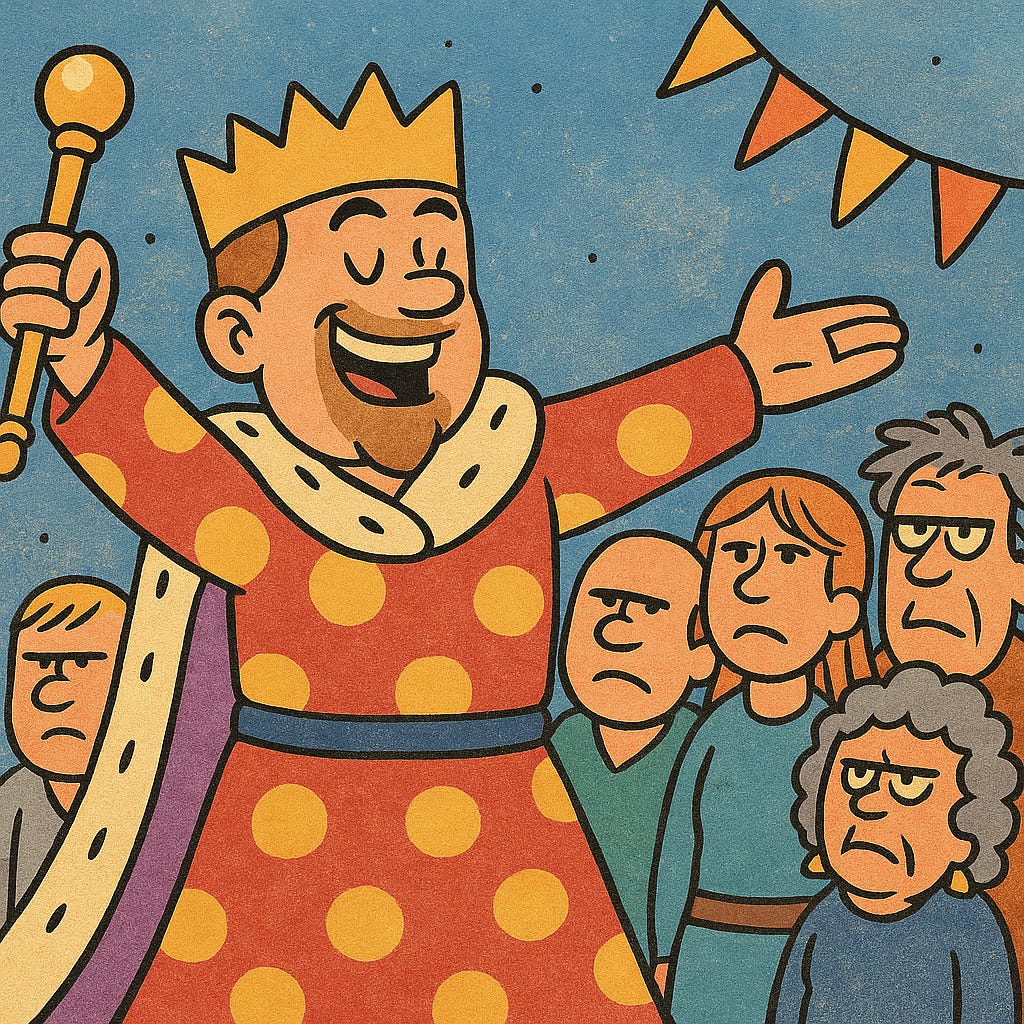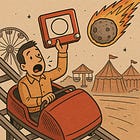Tao Te What Now? (Chapters 30-32)
The Power Trip, the Funeral, and the Untaggable Vibe
So you’ve decided to read the Tao Te Ching.
Either you’re seeking peace, chasing enlightenment, trying to out-vibe your therapist, or you just like obscure philosophy that makes you feel smart and dumb at the same time.
Good news: you’re in the right place.
Bad news: it won’t help you get your life together in the way you think it will.
Better news: it might show you that you never had to in the first place.
This ancient Chinese text, written by Laozi around 2,500 years ago, is basically a poetic mic drop about the nature of reality, control, ego, and why trying hard often makes things worse. It’s short, mysterious, non-linear, and aggressively subtle. You won’t get it all on the first read. That’s part of the charm. It’s also part of the test. Which you are not supposed to try to pass.
About This “Cursed” Interpretation
We’re going to go through each chapter, one by one.
Instead of solemn chanting or incense or “sitting with it in silence,”
We’re going to translate it for actual humans with internet-fried brains, executive dysfunction, and a fondness for sarcasm.
Disclaimers:
We love the Tao. We also enjoy poking fun at ourselves while getting deep. That’s the spirit this was written in.
If you're looking for academic accuracy or lineage-specific devotion… this isn’t that.
If you're spiritually curious, allergic to self-serious gurus, and suspicious of people who wear too much linen—welcome home.
Chapter 30
The One Where Crushing It Led to Crushing Regret
If you’re advising someone in charge, here’s the deal:
Don’t tell them to use force. It backfires. Always.
Yeah, they might “win.” But now there’s resentment, damage, and cleanup.
Thorn bushes. Burned bridges. Probably an HR meeting.
Great job, Cap’n. You made everything worse.
Big wars lead to empty fields. Big egos lead to hollow victories.
Just do what needs doing and move on.
Don’t use power as an excuse to do extra.
Get results, sure. But don’t make it a parade.
No bragging. No self-congratulations. No inspirational LinkedIn posts about “crushing it.”
Just get the thing done. Quietly.
Because that’s the natural way of things.
Using force means you’re already out of sync.
It drains you.
And whatever’s built on that kind of pushy energy?
Yeah, it doesn’t last.
That’s not Tao.
That’s burnout.
Chapter 31
If you're excited about weapons, go to therapy.
Weapons are fear tools. Everyone hates them, even if they pretend not to.
That’s why people who follow the Tao don’t glorify them. They avoid them unless absolutely necessary.
The wise don’t reach for violence first. Or second. Or ideally, ever.
They stay calm. They stay left.
The war crowd? Always going right. Always looking for a fight.
Weapons aren’t smart tools. They’re last resorts.
The wise person doesn’t celebrate using them, they’re not excited to "win."
They don’t confuse killing people with accomplishment.
If you enjoy victory too much, you’ve missed the point.
If you enjoy killing… well, congratulations, you’re officially disqualified from spiritual maturity. Or being a decent human.
In traditional rituals, the left is for joy.
The right is for grief.
So when the army lines up with generals on the left and commanders on the right, it’s not strategy. It’s symbolism.
It means war should be treated like a funeral.
Because when a lot of people die,
You’re not supposed to post a highlight reel.
You’re supposed to grieve. Deeply.
Even if your side “won.”
That’s why in Tao, victory looks more like mourning than celebration.
And if it doesn’t?
You might want to ask who you’ve become.
Chapter 32
Stop naming things. Seriously. Stop it.
The Tao isn’t a brand.
It has no slogan, no elevator pitch.
It's beneath names. Before frameworks.
It’s presence, not product.
It’s small, quiet, even, but you can’t hold it.
Try to grasp it, and it slips between your fingers like sleep or déjà vu.
If those in power could move with it, the rest of us wouldn't need convincing.
People, systems, nature, everything would recalibrate on its own.
No pressure. No push.
Rain would fall when it’s needed, not when it’s scheduled.
No one would need rules to act right.
No one would need a manual to live well.
Things would just work.
Like tides. Or breathing.
But we divide things up,
slice the whole into labels,
sort the labels into bins,
argue about the bins.
And now nothing fits.
We’ve named enough. More names won’t help.
Knowing when to stop is rare.
But stopping.. that’s where peace lives.
The Tao doesn’t hustle.
It doesn’t shout.
It moves like water finding its level.
Always heading home, without ever hurrying.


